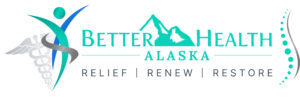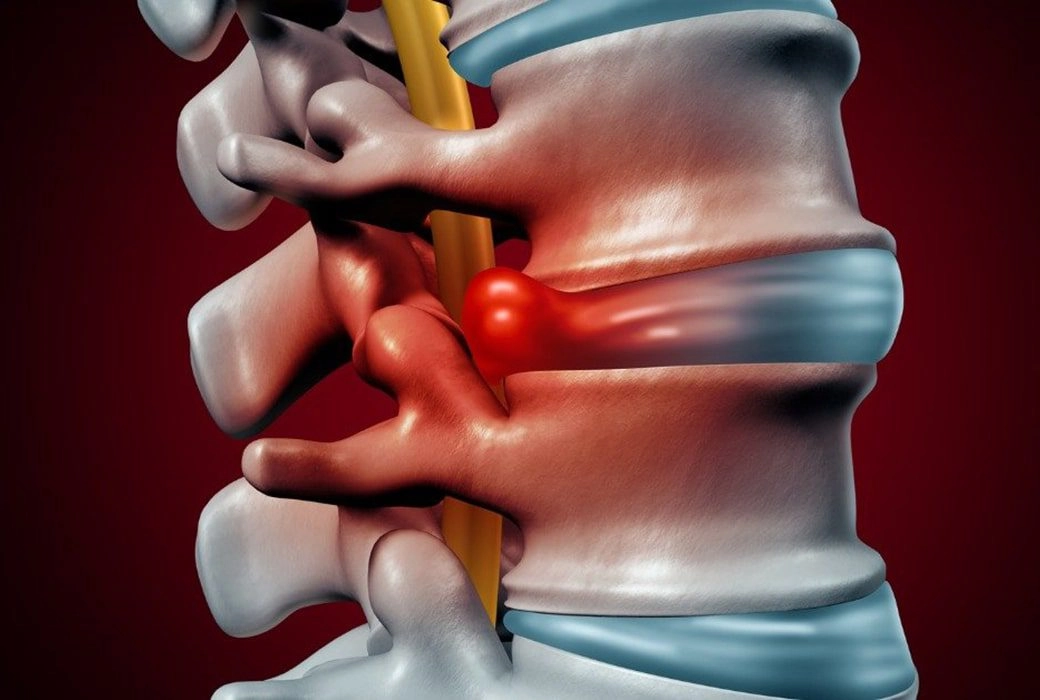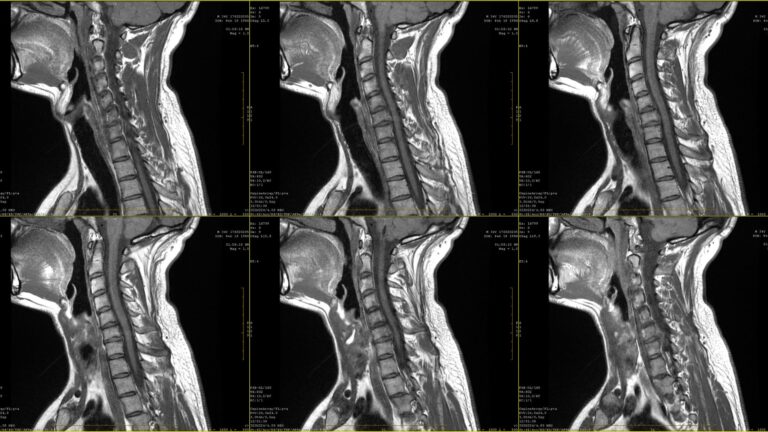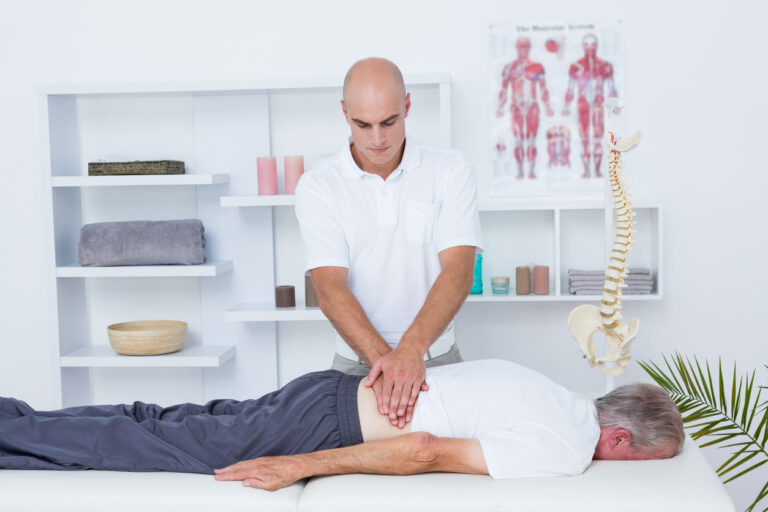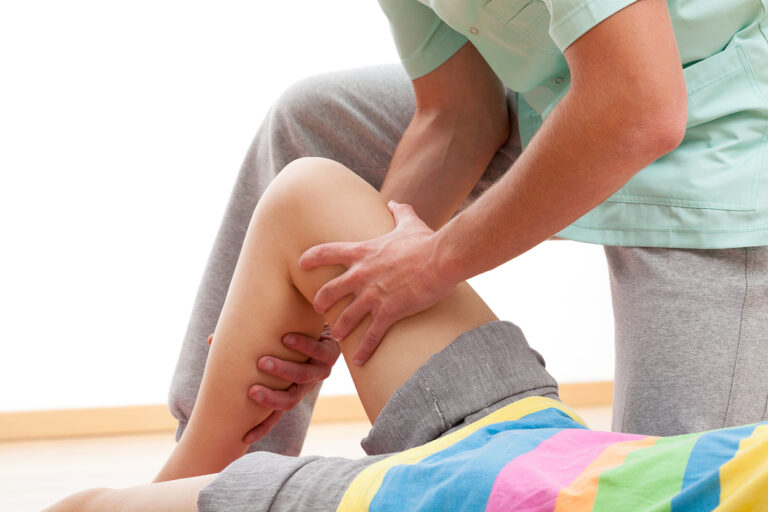Pinched nerves are no joke. They’re searingly painful, they limit your movement, and can create even more tension in the rest of your body, trying to compensate for the nerve. Chiropractic care is one of the best ways to care for and correct a pinched nerve over time, but if you can’t get to the chiropractor right away, there are a few things you should avoid until you get the care you need.
Below, we’ll go over the signs and symptoms of a pinched nerve, outline some of the biggest things to avoid if you have a pinched nerve, and go over some of the best practices for caring for the condition.

What is a Pinched Nerve?
A nerve becomes pinched when it is put under pressure due to an injury or misplacement of the surrounding tissue. For example, if you have a herniated disc in your spine, you’re more likely to experience a pinched nerve in that area.
They occur when the nerve is compressed or otherwise agitated and can cause some severe symptoms. A pinched nerve can also occur anywhere in the body, as you have muscles, bones, ligaments, and many other tissues all over your body that can become irritated.
Signs and Symptoms
Do you know that feeling when your foot “falls asleep”? Often times, a pinched nerve will elicit that same feeling in the area of the nerve, which can happen anywhere in your body. The most common places, though, are in your back, knees, wrists, or other joints. If you have a pinched nerve in any of these places, you’re likely to feel a tingling sensation or even numbness in the area. This sensation may also feel like its radiating outward to the surrounding tissue. This lack of feeling can create muscle weakness as well.
On the more extreme side, if the nerve is severely pinched, it can also cause a sharp pain that aches and also radiates outward from the point of injury.
You’re more likely to get a pinched nerve if you have diabetes, bone spurs, rheumatoid arthritis, or thyroid disease. If you’re pregnant, overweight, put on prolonged bed rest, or play intense sports, you’re also more likely to have pinched nerves.
The good news is that most pinched nerves heal within a few days to a week, with proper care and a lot of rest. Read on to learn about the best ways to treat your pinched nerve and get rid of this numbness or pain as soon as possible!
10 Things Not to Do if You Have a Pinched Nerve
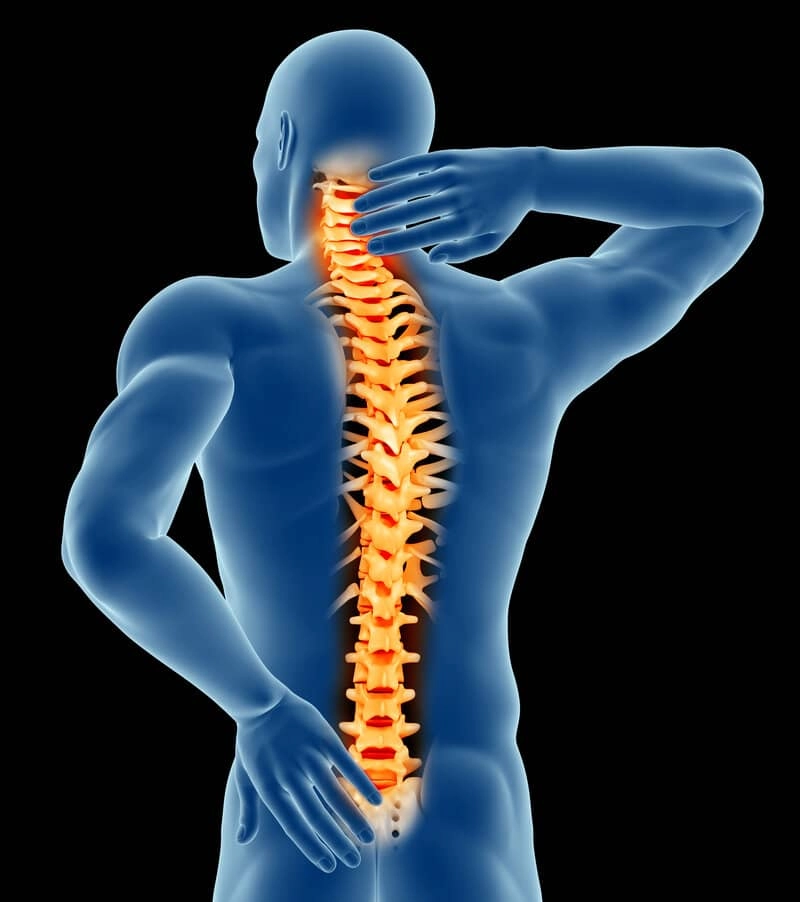
1) Lifting Heavy Objects
This is possibly the most important thing to avoid if you have a pinched nerve anywhere in your body. Lifting heavy objects puts undue pressure on all muscles and joints in your body, especially if you do it without proper form. But even with proper form, that kind of stress and tension created spontaneously is one of the best ways to guarantee that your pinched nerve will not heal quickly, and may even get worse. Keep in mind that anything over about 5-10 pounds is probably too much, depending on your fitness level and muscle strength. Pinched nerves do cause muscle weakness though, so still, be careful with any object over 5-10 pounds.
2) High Impact Sports
This may seem like an obvious one, but you should definitely avoid playing any high-impact sports if you have any sort of injury that has created a pinched nerve. However, many athletes feel entirely defeated if they can’t practice and play their sport – and with good reason! High-impact sports like rugby, football, hockey, and the like can be incredibly fun and great stress relievers for players. They may feel like they will lose their edge and get out of practice by taking time to rest a pinched nerve, but trying to power through the pain and injury will only make it much worse – and the recovery time much longer.
3) High-Intensity Exercise
Along those lines, high-intensity exercises (not necessarily sports) are also a good idea to avoid while healing a pinched nerve. This includes weight training, kickboxing, or any other regular, intense exercise you do to stay fit and healthy. While it may be discouraging to lose some muscle mass as you take some time away from the exercise, try to remember that there’s no shame in starting over and that it’s important to take care of your body in every way – not necessarily just in the muscular area. This means taking some time to rest and recover, especially from a pinched nerve.
4) High-Speed Exercise
Similarly, high-speed exercises can be just as damaging for a pinched nerve as high-intensity ones. At high speeds (running, biking, or the like), your chances of injury are much higher, especially if you’re misaligned during the exercise, which you’re likely to be if you have a pinched nerve. Stay away from these exercises, and stick to low-speed, low-intensity exercises like walking or gentle stretching while you heal.
5) Repetitive Motions
If exercise didn’t cause your pinched nerve, it may have been due to repetitive motions in your work or a frequent hobby of yours. Carpal tunnel syndrome often causes pinched nerves in the hands or wrists from typing too much and too often, as most of us do in our daily jobs. Avoid typing as much as you can while your nerve heals, or if you really can’t, try getting a wrist cushion for your keyboard to ease some of the stress on the nerves in that area.
If it wasn’t caused by typing, and maybe instead by a hobby that requires a lot of repetitive motion like woodshop or gardening or drawing, avoid those activities for the time being until your nerve heals.
6) Sudden Movements
Overall, try to avoid sudden movements as well. This goes for the whole body, but especially for the area of the nerve damage. Any sudden jerk-like motions will cause a stress response in the body, tensing up all nerves and muscles and making the pinched nerve much worse. Some examples of this may include sports like baseball or golf or any other sport that has long periods of rest followed by a sudden, intense motion. Also, suspense or horror movies that cause that jerk reaction should be avoided (sorry film lovers!).
7) Staying Sedentary
This is an important one both for the treatment of a pinched nerve and its prevention. Staying in one sedentary position for a majority of your day can wreak havoc on your body, muscles, and in turn, nerves. While you need rest to heal a pinched nerve, staying in one spot the entire day will make it worse and might cause other nerves in your body to react negatively. Rest as much as you can, but every hour or so, gently and slowly pick yourself up and take a little walk or do a gentle stretch to keep the fluids and muscles of your body moving.
8) Amusement Park Rides
This goes hand-in-hand with the sudden movement aspect of healing a pinched nerve. Amusement park rides are chiropractic nightmares. While they’re fun and exciting, they push and pull you around in all different directions that are unnatural to your movement and alignment. The sudden motions and high-intensity nature of these rides are something to avoid at all costs, which may be hard with the wonderful summer months coming up. Luckily, you can still enjoy a fun boardwalk game and cotton candy in the meantime!
9) Getting Little to No Sleep
Also, make sure you’re getting plenty of sleep while healing a pinched nerve. Sleep is a unique time of healing, restoration, and regular maintenance for our bodies, so when something is wrong, try to head to bed early, sleep late if you can, and take naps throughout the day to give your body the rest it needs to heal. Our bodies have incredible abilities to restore themselves – we just have to give them the time and space to do it!
However, also make sure that you have a supportive, appropriate pillow and mattress to sleep on when you need this kind of intense healing (and every night, for that matter). Sleeping in an uncomfortable, unsupported position may cause further nerve damage, so keep your sleep as healthy as possible.
10) Avoiding the Doctor
Definitely make sure to see a specialist if you suspect that you have a pinched nerve. A chiropractor can properly diagnose the condition and give you the personalized, unique tools you need to help you heal as efficiently and safely as possible. Stay in their care after you’ve healed as well to prevent any further damage and maintain a healthy, pain-free lifestyle.
If you don’t have transportation to your chiropractor appointment in Juneau, Alaska, take advantage of our Get-a-Ride promise at Better Health Juneau.
Best Practices for Caring for a Pinched Nerve
Most often, the best way to care for a pinched nerve is simply to rest under the monitoring of a chiropractor. Taking a break from any activities that may have caused the pinched nerve will be your best bet for healing quickly and entirely.
Other times, over-the-counter pain medication may be a good idea to help ease the pain of the pinched nerve while it heals and you rest.
Many people ask if heat or ice is better for a pinched nerve. The answer is both! Alternate heat and ice to improve circulation and bring fresh blood, along with its healing nutrients, to the area.
Sometimes, in more extreme cases where the nerve doesn’t heal for weeks on end, physical rehabilitation therapy may be required to get the nerve back to its proper functioning ability. You may also need a brace or splint to keep the area from moving in a way that would irritate the pinched nerve further and make it worse. But remember, in most cases, simple rest, regular chiropractic care, and patience will do the trick.
Preventing Pinched Nerves
The number one practice for preventing pinched nerves is to maintain good posture and keep your body moving. Challenge yourself to keep your spine upright and aligned throughout the day, and make sure not to keep any part of your body in the same position or do the same movement for too long. Safely and effectively monitoring your body, being aware of anywhere you’re holding tension, and correcting those habits that cause tension and injury is the best way to prevent pinched nerves.
Also, maintaining a healthy weight and exercising a few times per week will take this one step further. Working your body in safe, yet challenging, new ways will help you stay nimble, healthy, and pain-free in the long term. Make sure you’re varying your exercises – a simple run every few days is a wonderful start, but it won’t do much in the long term to increase your muscle stamina, strength, and joint health. It may even have the opposite effect. Try stretching, yoga, strength training, and different cardio exercises to get a well-rounded health regimen in place to meet your body’s unique needs.
Wrap-Up
Pinched nerves can be scary and painful. The tingling, numbness, or sharp pain associated with the condition can be overwhelming, and there are many risk factors to take into consideration.
If you have a pinched nerve now, generally stay away from anything that would put a strain on the nerve, no matter where it is. This includes high-intensity exercises, lifting heavy objects, or anything else that may cause sudden stress or pain in the body, as this could make the pinched nerve much worse. Also, make sure that you’re practicing general self-care – specifically getting enough sleep and seeing the proper doctors and experts to treat the nerve.
It’s important to remember that this is a condition that affects many, many others, and there are safe and effective treatment measures for you to take. Resting, moving your body in different but safe ways, and getting chiropractic care regularly is the most effective means of prevention of a pinched nerve.
Do you have any experience with pinched nerves? What would be your best tips for dealing with the issue? What did you avoid while in treatment? Please share your thoughts with us below! We would love to hear your insight!
If you are suffering from a pinched nerve, visit Better Health Chiropractic Juneau’s 5-star rated chiropractor and let us find the treatment you need.
What Is a Pinched Nerve?
Pinched nerves are no joke. If you have a pinched nerve, it means that the surrounding tissue of the nerve put it under too much pressure, causing numbness, tingling, or sharp pain in the area.
Caring for Pinched Nerves
Chiropractic care can help alleviate your symptoms and heal your pinched nerve, but if you want it to heal quickly, effectively, and completely, there are 10 key things you shouldn’t do during the healing process:
- Lifting heavy objects (anything over 5lbs. on average)
- High-impact sports (football, hockey, rugby, etc.)
- High-intensity exercise (weight training)
- High-speed exercise (sprints, biking)
- Repetitive motions (typing, cleaning, etc.)
- Sudden movements (stay away from stress-response-inducing things like horror movies)
- Staying sedentary (move at least once every hour)
- Amusement Park Rides (sorry carnival lovers!)
- Getting Little to No Sleep (let your body rest!)
- Avoiding the Doctor (it’s no fun – but it’ll help you heal much faster and more effectively)
All of these things can negatively affect your pinched nerve, making it worse and more painful.
More Tips
While caring for your pinched nerve, you can supplement your chiropractic care with over-the-counter pain medication to help with pain and inflammation. Your doctor may also suggest physical rehabilitation therapy for extreme cases, but most of the time, rest, regular chiropractic care, and patience will do the trick!
Prevention
Prevent pinched nerves in the future by maintaining good posture every day, avoiding repetitive movements, exercising and stretching your body safely, and watching your weight and other health conditions that may make you more prone to pinched nerves. Discuss these simple lifestyle switches with your chiropractor as your pinched nerve heals to make sure this doesn’t happen again!
